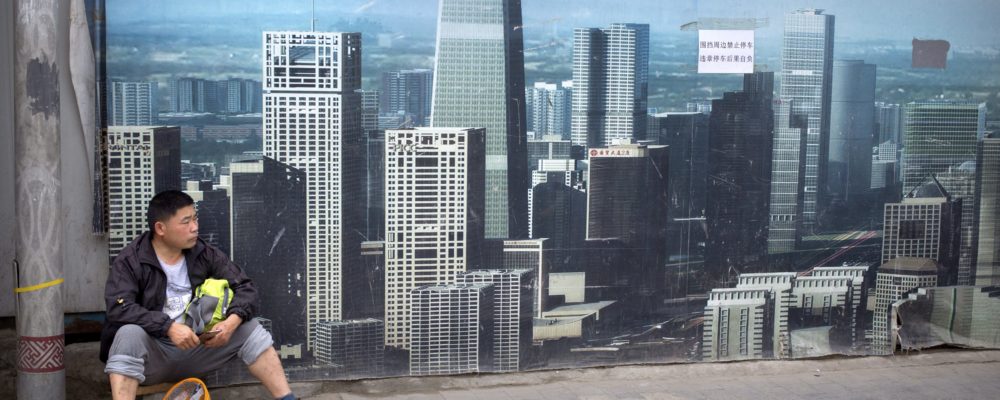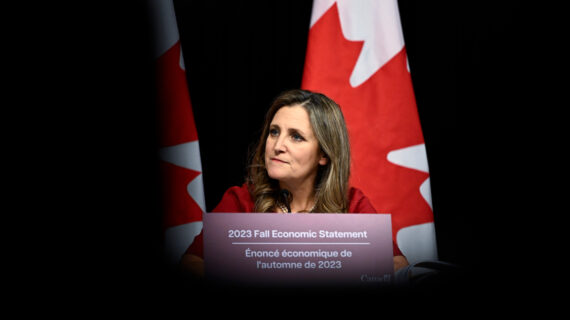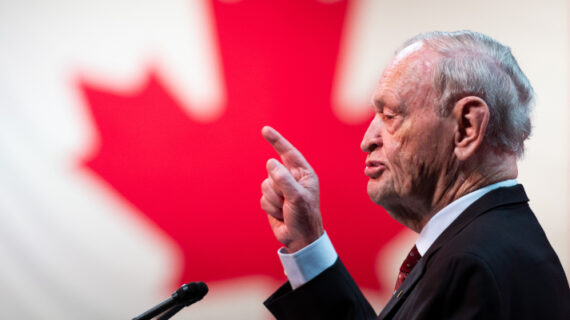After a year of lockdowns and enormous government subsidies, Canada remains stuck in the COVID pandemic.
Faced with a crisis in March 2020, the federal government essentially decided to put the economy on its back — issuing generous wage subsidies, income replacements, business loans, and all manner of other supports. Canada’s fiscal capacity has deteriorated at an alarming rate as a result, and there’s a raging debate about whether Canada has spent too much on the country-wide bailout.
But what if Canada hasn’t spent enough? What if all this pandemic spending is merely making up for a generation of federal underinvestment, an austerity regime that’s been holding the country back?
These are the types of ideas presented in Michael Pettis and Matt Klein’s recent book, Trade Wars are Class Wars. Klein and Pettis forcefully argue that the global economy is wracked with dangerous imbalances. Debt gluts in China have led to persistent shortage in business investment in the U.S., Canada, and Western Europe.
Elites have benefitted from the arrangement, while the general population has suffered. Left unchecked, these inequities could blow up the entire international order. The proper response in the West and China is for governments to redistribute income from the elites to the broader populace: introduce more generous benefits and labour policies and, in the case of the West, spend more on public goods like infrastructure.
The book’s thesis is obviously resonating. Last week, it won the $15,000 Lionel Gelber Prize, which is given out annually to the world’s top English non-fiction book on international affairs. The award is presented by the University of Toronto’s Munk School of Global Affairs & Public Policy and Foreign Policy Magazine.
Pettis and Klein start in China, where Pettis lives and works. Pettis is an authority on the country, and his expertise in finance, history, and accounting give him greater insight into China than many other pundits. Pettis and Klein show that the country is terribly unequal. Elites in the business and political class (which, in China, tend to be one and the same) have successfully lowered their costs of doing business to a point whereby they can outcompete industries in other nations.
To keep up its ideal level of growth, China is spending more public debt and receiving less in return.
Non-existent labour and environmental policies lower wages and regulatory expenses. Politically connected businessmen get access to cheap loans (which they don’t have to write off, even if they go sour). Chinese businesses use these advantages to export their wares to the rest of the world, growing the country’s trade surplus.
China’s growth is an incredible story and it’s lifted millions of people out of poverty. However, the original post-Deng Xiaoping arrangement is running out of road. There’s no more profitable infrastructure investment in China. They have simply built too many roads, bridges, train tracks, and so on.
To keep up its ideal level of growth, China is having to spend more and more public debt and receiving less in return. There are trains and bridges to nowhere, empty airports and ghost towns full of unused skyscrapers and condos.
Pettis points to other countries that have successfully used a public investment, supply side growth economic model in the past, but had to retrench as it became increasingly unfeasible: Brazil, Japan and Korea. Some countries have been better at managing the transition than others, but, regardless, China will have to make its own transition soon.
Pettis and Klein suggest that China should stop subsidizing business investment and transfer more wealth to the working class and broader Chinese population. Currently, Chinese workers take home less share of their production than any other country in the world. True, they are marginally better off than they were under the strict communist rule of Mao Zedong, but they could be doing much better if labour and income distribution were more equitable.
More income would help Chinese workers as well as the entire economy. Consumption would rise, and that would benefit local and international business (in turn helping China lower its trade surpluses). Chinese mandarins know that it must make this transition, but it’s politically difficult to do so. Party bosses and their friends enjoy the profits from their businesses and they’re fighting reformers at every turn.
Whereas China is investing too much in public infrastructure and real estate, the opposite is true in Germany. For the past generation, German elites have consciously decided to underinvest in the country. That has led to rising trade surpluses (since the country is no longer importing as many goods and services), but at a cost of outdated and ineffectual public goods (Germany’s internet, for example, is of notoriously poor quality). Pettis and Klein provide a political history of Germany’s shift to austerity over the past generation, detailing how former Chancellor Gerhard Schröder and his government passed a series of reforms that have weakened German workers.
Making matters worse is that Germany has exported its austerity regime to other European countries. The European Union’s debt threshold (and German insistence on it) have led to other countries also underinvesting in much needed public goods. Like China, the solution for Germany is to reform its labour policies and business regulations, to the benefit of the many (but at the expense of the few German elites that benefit.)
Finally, Pettis and Klein get to the U.S., the world’s largest economy. The chapter mostly focuses on monetary policy and its history. The U.S. dollar is the world’s reserve currency and, rather than being a competitive advantage, it has become a critical American weakness. There is enormous demand for U.S. treasuries and other debt instruments, especially from Asia and Europe.
The U.S. has had to print money to keep up with this international demand, making America and U.S. citizen incredibly indebted. Americans increase their consumption with this debt, and they have become the “consumers of last resort,” hoovering up subsidized imports from China and elsewhere. U.S. trade deficits grow and American industries suffer.
Pettis and Klein believe that America and the world should agree to a different type of international reserve currency (referencing John Maynard Keynes original idea of bancor) and, again, transfer more wealth from American and international elites to the working class via investments in public infrastructure and the like.
The fact that Trade Wars are Class Wars won the Lionel Gelber Prize is a sign that Pettis and Klein’s ideas hold sway with a rising proportion of Canadian business and policyminded elites. Fiscal spending and full employment are in and restraint and macro theories about the proper proportion of fiscal to monetary policy are out.
Canadians want governments to spend and that contradicts bedrock conservative values of prudence and cautious fiscal management.
Prime Minister Justin Trudeau and his Liberal government have long argued for these types of ideas. The pandemic has only encouraged them further, and the federal government will be spending more than $100 billion on “shovel worthy” projects that will finally lead Canada to the promised land — an equitable, prosperous, green utopia.
On the face of it, Trade Wars are Class Wars is not a conservative book. It taps into a growing zeitgeist that the government can do more to promote equitable and inclusive growth, and they should do it now, when interest rates are low and business is underinvesting.
How can conservative-minded people engage with these ideas?
These are challenging political arguments for conservatives. The consensus that Canada should be living within its means and reducing deficits and debt appears to be over (or at least, put on the backburner until the next generation has to deal with the consequences). Canadians want governments to spend and that contradicts bedrock conservative values of prudence and cautious fiscal management.
But there is a way forward for conservatives. Pettis and Klein and likeminded elites want money to flow to the masses, so it spurs consumption, investment and production but they don’t necessarily specify the ideal vehicles. To them, it doesn’t particularly matter. The idea is to increase consumption, full stop.
Conservatives can certainly do that, and they can do it in a way that’s in line with their values. Canadian Conservatives have done it in the past. Prime Minister Stephen Harper cut the GST twice, and created the Universal Child Care benefit. More recently Ontario Premier Doug Ford’s Progressive Conservative government has issued direct cash subsidies to parents to help them manage the extra costs of the pandemic. These policies weren’t cheap, but they were conservative-minded policies that helped boost consumption. They flowed money away from the Ottawa and Toronto bureaucracies and their top-down central planning and into the hands of everyday Canadians.
The Trudeau Liberals have embraced the idea that government must lead a recovery because only government will provide the public goods necessary to defeat the challenges of the 21st century, like climate change and public health. That’s meant greater operating costs at the federal government and an ever-mushrooming set of commissions, roundtables, and expert panels.
The Conservative vision of how Canada gets to full employment can and should be different. Instead, let’s start with the ideas of Trade Wars are Class Wars and advocate for programs that will reduce Ottawa’s power and control over the economy and lead to more consumption and more investment for everyday Canadians.




